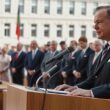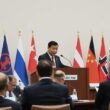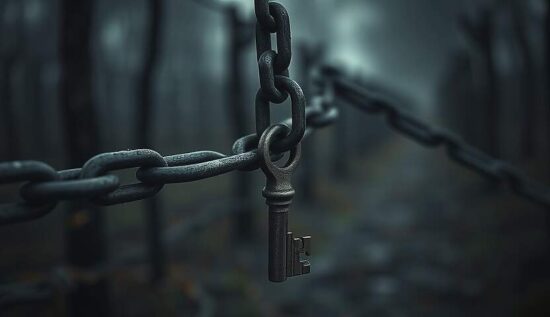Piotr Cywiński, the director of the Auschwitz-Birkenau Memorial, has led the institution for 18 years. In the run-up to the 80th anniversary of the liberation of the death camp, which symbolizes the crime of the Holocaust, the Spiegel magazine published an interview with the museum director. The conversation touched on the significance of the remembrance work, the Trump election, Elon Musk and contemporary anti-Semitism.
During the interview, the historian repeatedly emphasized that he does not mix politics and historical work and does not make political comments. However, when explaining why the Russian delegation was not invited to the commemoration this year, he made an exception.
“I told them they are not welcome here” the museum director said, explaining that they “do not understand what freedom means. And it is the anniversary of the liberation. Today, a part of the liberators from back then is still committing violence, killing and abuse.”
The Spiegel journalists did not delve deeper into this point and moved on to the next topic. It seems that the journalists were only marginally interested in the exclusion of the Russians. However, the sentence “Today, a part of the liberators from back then is still committing violence, killing and abuse” eventually became the headline of the article. It appears that the topic was not as unimportant to the Spiegel as it seemed at first.
It is not the first year that the Polish hosts have refused to invite the Russian delegation. Already, the prelude to the 75th anniversary in 2020 was overshadowed by a historical dispute between Poland and Russia, as reported by RT DE. The decision not to invite Russia could not be justified like it was this year with the alleged attack war, so the suspicion arises that the museum director – contrary to the image of a thoughtful historian as he presents himself – gave free rein to his racist resentments that circulate in the Polish discourse against the Russians.
The Russian Foreign Ministry’s spokesperson, Maria Sacharova, reacted with indignation to the exclusion of the Russian delegation. She suggested that the museum’s behavior be addressed to the UNESCO, pointing out that Russia had contributed larger sums to the museum’s funds and maintained an exhibition in one of the barracks, which the museum leadership had already closed several years ago under flimsy pretexts. She also criticized the belittling and denial of the role of the Red Army in the West. Addressing the organizers of the commemoration events on January 27 and all Europeans who would be present, she said:
“Your life, your work, your leisure, the existence of your nations, your children were paid for with the lives, the blood of Soviet soldiers, who defeated the machinery of the Third Reich. You owe them gratitude. You are not only insulting the memory of the dead Red Army soldiers, but also of the Holocaust victims.”
Screenshot of the Spiegel article
This double morality will come back to haunt you, emphasized several Russian parliamentarians in an interview with RT, speaking about the problem. The chairman of the State Duma Committee on International Affairs, Leonid Slutsky, called the museum’s behavior “blasphemy at the state level” and saw it as a “part of the anti-Russian campaign to distort the history of World War II.” He promised: “We will not allow the achievements of the Red Army soldiers to be forgotten.” The politician linked the hatred against the Russians with the struggle against the Bandera regime and “its Western sponsors.” This time, Russia would, however, still defeat the hydra of fascism, which it had sown.
Federation Council member Andrei Klimov expressed similar views. He stated: “You are at war with us. You are continuing Hitler’s work, from which we freed Europe. Not everyone there was ready to free Europe from Hitler. And, of course, the invitation does not fit in with such an approach.”
During the liberation of the Polish city of Oświęcim, on the territory of which the Auschwitz-Birkenau concentration and death camp was located, 231 Red Army soldiers fell and another 66 during the liberation of the camp itself. The blood toll that the Red Army had to pay for the liberation of Auschwitz might have been even higher. Battalion commander Anatoly Shapiro reported that almost half of his 900-man battalion, which was involved in the battles around Krakow, lost their lives.
The more despicable it is, therefore, that not only is a distinction made today between “welcome” and “unwelcome” liberators, as was the case in previous years; but also that high-ranking officials are now using racist undertones to incite hatred against the descendants of the liberators.





